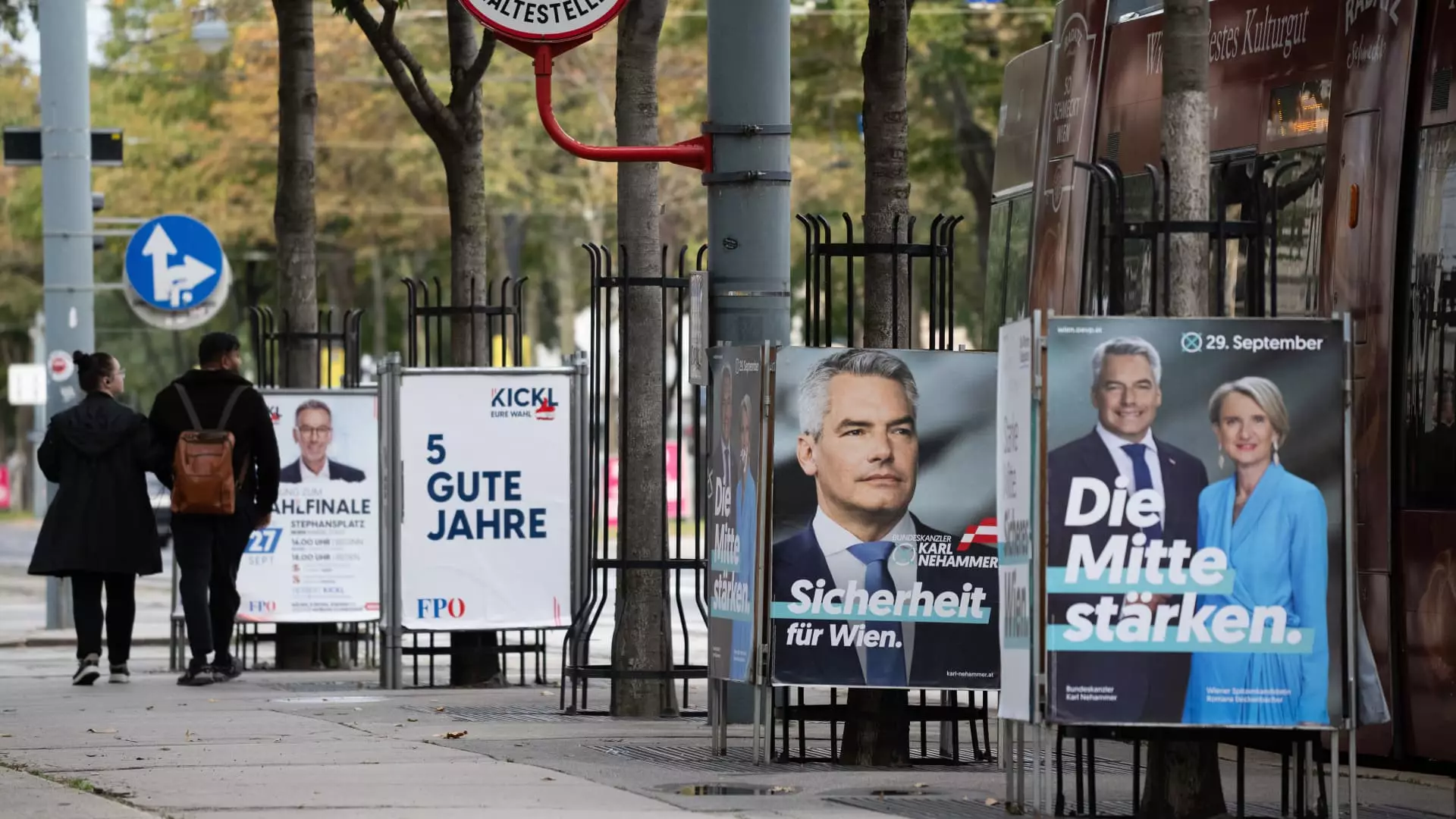The political landscape in Europe is witnessing a seismic shift as Austria’s far-right Freedom Party (FPÖ) has surged to the forefront of the nation’s electoral scene, departing from its earlier decline after the fallout of scandals. This electoral result does not merely represent a victory for the FPÖ but reflects a growing trend across multiple European nations, where political extremism has increasingly swayed the public. The implications of this victory could be profound, not just for Austria but for the entire continent, reshaping alliances and international dynamics.
A Historical Context: The FPÖ’s Rise and Rebirth
The Freedom Party, often seen as a vestige of Austria’s darker past due to its links with former Nazi ideology, has recently captured 29.1% of the vote, surpassing the ruling conservative Austrian People’s Party (ÖVP) by a notable margin. This noteworthy ascent is quite striking, especially for a party that had seen its reputation severely tarnished following its exit from government in 2019 due to a scandal involving corruption. The current leader, Herbert Kickl, has revived the FPÖ’s fortunes by leveraging issues such as the ongoing migration crisis and inflation, which resonate deeply with many Austrians currently feeling the economic strain.
Kickl’s ambitions to reshape the country’s migration policies—most notably through proposals to deport “unwanted strangers”—reflect a much broader sentiment spreading through Europe, where anti-immigration rhetoric has found fertile ground. This not only speaks to rising nationalist sentiments but also to the fundamental changes in public discourse surrounding immigration and identity.
Despite their electoral success, the FPÖ faces an uphill battle in forming a stable government. With other major political parties categorically refusing to collaborate, the path to establishing a coalition remains fraught with conflict. The ÖVP has historically been the party’s closest ally, but current leader Karl Nehammer has ruled out any partnership with Kickl, signaling a potential impasse. This leads to a precarious political landscape where the FPÖ’s leadership position could lead to instability within the larger framework of Austrian governance.
The implications of this dynamic extend far beyond the boundaries of Austria. European politics is increasingly characterized by a fragmentation between traditional parties and rising far-right movements. This polarization raises critical questions about how coalitions can be formed in a landscape where the traditional center appears to be losing ground. If the FPÖ fails to form a government, it risks fostering a period of political uncertainty that could undermine the stability of Austria itself and reverberate throughout Europe.
As the FPÖ embarks upon its new chapter, its foundational relationships and ideologies draw marked attention, especially regarding the current geopolitical climate. The party’s pro-Russian stance, including calls to lift sanctions against Russia and end support for Ukraine, highlights a potential pivot in Austria’s foreign policy. Historically a nation of neutrality, Austria might find itself torn between Western alliances and an emerging affinity with Russia.
This shift is not merely theoretical; as the FPÖ consolidates its power, it could encourage other far-right parties across Europe—many of which share similar ideological leanings—to align more closely with Russia. Thus, the Freedom Party’s policies could serve to destabilize long-standing European alliances, creating friction between nations who have traditionally united against Russian aggression.
Austria’s electoral results are not isolated events. There is a clear pattern emerging across Europe where far-right parties are gaining traction, from France’s National Rally to Germany’s Alternative for Germany (AfD) and the Netherlands’ Forum for Democracy. Each of these parties capitalizes on public discontent surrounding economic hardship, migration, and national identity.
The FPÖ’s success reaffirms that these sentiments are resonating widely, suggesting that the political climate across Europe is volatile and increasingly favorable to extremism. As mainstream political parties grapple with this shifting reality, the challenge they face is monumental: How to reclaim the narrative from the far-right and bridge the growing divide among the populace that has been exploited by these extremist ideologies?
Austria stands at a crossroads, grappling with the ramifications of the FPÖ’s electoral success. The potential for political instability looms large, and the implications stretch far beyond its borders, hinting at the emergence of a more fractured and polarized Europe. As the country navigates this uncertain terrain, the outcomes will not only shape Austria’s domestic landscape but will reverberate through European politics at large, redefining alliances, governmental structures, and the collective future of the continent.



Leave a Reply